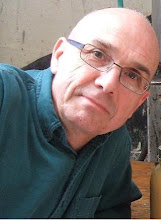 m at www.cjly
m at www.cjly .net (Kootenay Cooperative Radio)
.net (Kootenay Cooperative Radio)Listen to a podcast of this show here
Autorickshaw: Ragam and Saraswati from Four Higher (Tala-Wallah)
Vocalist Suba Sankaran leads this Toronto group that plays a mix of Indian classical, jazz, and funk. Always a big fan of Indian music and its cross-over with Western music, I find the funky electric bass lines really interesting here, and I like Suba Sankaran's vocals. In December Autorickshaw will perform a concert in Toronto to mark the 25th anniversary of the Bhopal disaster, the worst industrial disaster in history. The concert is a benefit for the Sambhavna Clinic which treats the thousands of people still affected.
Gotan Project: Gotan Project Meets Chet Baker from Inspiracion-Espiracion (Pioneer)
 This piece samples Chet Baker playing Round Midnight accompanied by accordion with a tango-like section as well. The Paris-based Gotan Project likes tango but they are into beats and samples too, and they throw them together every which way, with surprising results. This Chet Baker piece has the feel of a live performance in a relaxed club in some mysterious part of a big city-- somewhere like Rio or Buenos Aires.
This piece samples Chet Baker playing Round Midnight accompanied by accordion with a tango-like section as well. The Paris-based Gotan Project likes tango but they are into beats and samples too, and they throw them together every which way, with surprising results. This Chet Baker piece has the feel of a live performance in a relaxed club in some mysterious part of a big city-- somewhere like Rio or Buenos Aires.Bernard Krainis and the London Strings directed by Neville Mariner: Concerto in A (Vivaldi) and Concerto in C (Handel) from Concertos for Recorder (Mercury)

It's such a treat to hear virtuoso recorder in the baroque style. That was the recorder's heyday before it was supplanted by the transverse flute. In the 1700's there were recorder virtuosos and composers writing for it. Bernard Krainis, who died in the late 1990s, once said that the recorder is harder to play than a reed or flute because you can't control the sound with your embouchure, it has to come from your diaphragm like a singer. This is a piece of vinyl from the 1960s, out of print now.
Dave Brubeck: Strange Meadowlark and Three to Get Ready from Take Five (Columbia)
When this record came out in the early 1960s, the Brubeck Quartet was popular with the masse
 s but not with us really hip people, except that we had to admit a grudging respect for alto saxophonist Paul Desmond whose brand of dry, fluent lyricism is still unparalleled. Part of our problem was that tendency of youth to dismiss any artist once they are known to more than a dozen people. (I have a friend who wears a t-shirt that boasts: I listen to bands that don't even exist yet!) Anyway to me now Brubeck was an interesting and engaging experimenter but not one of the great jazz pianists, but Paul Desmond gets more wonderful with time (even though he's been gone a couple of decades now). And this is a much better record than I and my friends were prepared to admit back then.
s but not with us really hip people, except that we had to admit a grudging respect for alto saxophonist Paul Desmond whose brand of dry, fluent lyricism is still unparalleled. Part of our problem was that tendency of youth to dismiss any artist once they are known to more than a dozen people. (I have a friend who wears a t-shirt that boasts: I listen to bands that don't even exist yet!) Anyway to me now Brubeck was an interesting and engaging experimenter but not one of the great jazz pianists, but Paul Desmond gets more wonderful with time (even though he's been gone a couple of decades now). And this is a much better record than I and my friends were prepared to admit back then.















